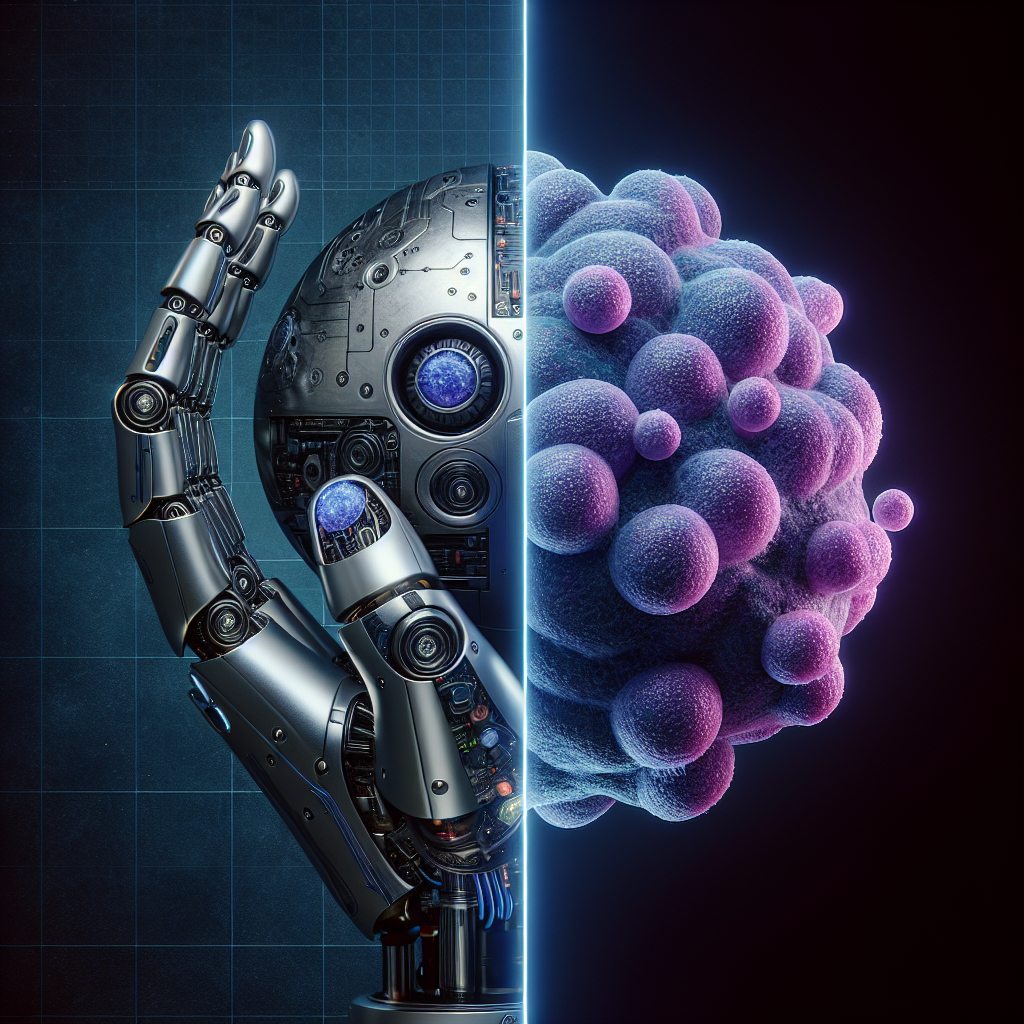Artificial Intelligence (AI) has revolutionized the field of healthcare in recent years, including its role in cancer treatment. With the vast amount of data available in the medical field, AI has the ability to analyze and interpret this information at a much faster rate than humans, leading to more accurate diagnosis and personalized treatment plans for cancer patients.
One of the key areas where AI is making a significant impact in cancer treatment is in medical imaging. AI-powered software can analyze medical images such as CT scans, MRIs, and mammograms to detect early signs of cancer that may be missed by human radiologists. This can lead to earlier detection of cancer, which is crucial for successful treatment outcomes.
In addition to diagnosis, AI is also being used to personalize cancer treatment plans. By analyzing a patient’s genetic makeup, medical history, and treatment response data, AI can help oncologists determine the most effective treatment options for each individual patient. This personalized approach to treatment can lead to better outcomes and fewer side effects for cancer patients.
AI is also being used to predict the progression of cancer and identify patients who are at a higher risk of developing certain types of cancer. By analyzing large datasets of patient information, AI algorithms can identify patterns and trends that may indicate a higher risk of cancer, allowing for earlier interventions and more effective treatment strategies.
Another area where AI is being utilized in cancer treatment is in drug discovery. Traditional drug discovery methods can be time-consuming and costly, but AI has the ability to analyze large datasets of genetic and molecular information to identify potential drug targets and develop new treatments for cancer. This can lead to the development of more targeted and effective therapies for cancer patients.
Overall, the role of AI in cancer treatment is rapidly expanding and has the potential to revolutionize how we diagnose, treat, and prevent cancer. By harnessing the power of AI, healthcare providers can provide more personalized and effective care for cancer patients, leading to improved outcomes and quality of life.
FAQs:
Q: How is AI being used in cancer diagnosis?
A: AI is being used in medical imaging to analyze images such as CT scans and MRIs to detect early signs of cancer. AI algorithms can identify patterns and abnormalities in medical images that may be missed by human radiologists, leading to earlier and more accurate diagnosis of cancer.
Q: How does AI personalize cancer treatment plans?
A: AI analyzes a patient’s genetic makeup, medical history, and treatment response data to determine the most effective treatment options for each individual patient. This personalized approach to treatment can lead to better outcomes and fewer side effects for cancer patients.
Q: Can AI predict the progression of cancer?
A: Yes, AI algorithms can analyze large datasets of patient information to predict the progression of cancer and identify patients who are at a higher risk of developing certain types of cancer. This can lead to earlier interventions and more effective treatment strategies.
Q: How is AI being used in drug discovery for cancer treatment?
A: AI is being used to analyze large datasets of genetic and molecular information to identify potential drug targets and develop new treatments for cancer. This can lead to the development of more targeted and effective therapies for cancer patients.

